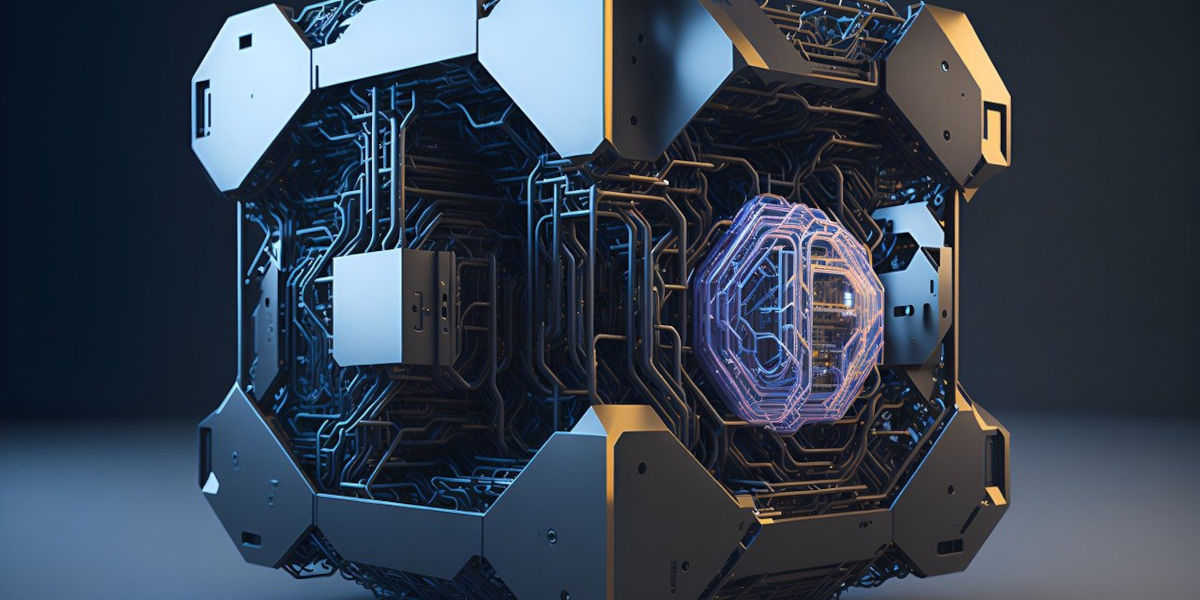Science and technology have always been intertwined with the evolutionary journey of our society. Among the recent innovations marking a significant milestone in this journey is the rise of quantum computing. As a blend of quantum physics and computer sciences, quantum computing holds promise to redefine computation limits and present endless possibilities.
This article delves into the exhilarating world of quantum computing and how it compares to classical computing, the incumbent industry standard. Most importantly, we will attempt to understand the contentious question: Can Quantum Computers Crack Encryption?
The Intersection of Quantum Computing and Physics
Deciphering what quantum computing is demands a rudimentary understanding of quantum physics. Quantum physics, quite simply, is the study of the smallest particles in the universe. Particles, in this realm, have a peculiar trait, termed as 'superposition', that allows them to exist in multiple states simultaneously.
Quantum computing harnesses this fascinating aspect of quantum mechanics: they deal with 'qubits' instead of the traditional 'bits' found in classical computing. These qubits, owing to superposition, can represent both '0' and '1' at the same time, a stark departure from classical bits that are either 0 or 1.
Difference Between Classical and Quantum Computers
Classical computers and quantum computers, though sharing the fundamental purpose of computing, operate on vastly different principles. As we have mentioned previously, classical computers work with bits, the smallest unit of data, that embodies a binary state – either a '0' or a '1’. The operations of a classical computer revolve around these binary states.
On the other hand, a quantum computer operates with qubits. Unlike classical bits confined to a definite state, a qubit, thanks to its quantum nature, can exist in multiple states concurrently, thereby drastically increasing computational power.
Moreover, state entanglement - another mystifying property of quantum physics - allows qubits to be interconnected in such a way that the state of one qubit can depend on the state of another, even if they are light-years apart. This phenomenon, in effect, multiplies the computing capacity of quantum computers and offers computational possibilities far beyond the scope of classical computers.
Can Quantum Computers Crack Encryption?
With the incredible processing power that quantum computers promise, one question has been looming large in the tech world: Can Quantum Computers Crack Encryption?
Conventional encryption methods, such as RSA and ECC, rely on the factoring of massive prime numbers - a feat near-impossible for classical computers within any reasonable timeframe. However, quantum computers, with their exponential processing power, could potentially perform such tasks with ease, posing a serious threat to traditional encryption schemes. This potential has sparked a relentless quest for quantum-proof encryption methods. So, while it appears that quantum computers may crack current encryptions, the race to reinvent encryption for a quantum age is very much on.
Shrinking Scale, Growing Revolutions
As Moore's Law, which predicts the steady evolution of classical computing power, comes under threat due to the physical limits of miniaturization, quantum computers come in as saviors. All the improvements seen in today's technology sector are largely due to our capacity to compress more and more silicon transistors onto a single chip— a reality that's rapidly reaching its physical boundaries. With their binary-in-nature standard switches stuck between two states— on or off— our present desktops are stuck in a two-dimensional world.
Quantum computers, by contrast, hinge on quantum bits, or qubits, which can exist in multiple states simultaneously. This ability to inhabit many states at once— a property known as superposition— along with another property, entanglement, which allows qubits that are entangled to know instantly the state of their partners, regardless of distance— provides quantum computers a vast computational capacity.
Impact on Cryptography and Network Security
One of the areas quantum computing could have a significant impact on is cryptography. Quantum computers, due to their ability to process complex calculations exponentially faster than classical computers, could potentially crack codes that would take classical computers billions of years to solve.
While this could potentially pose a risk to current cryptography systems, it also opens up the opportunity for quantum encryption - using the principles of quantum mechanics to secure data. Quantum encryption, or quantum key distribution, uses the principle of superposition to detect if someone is attempting to intercept a message.
The Dawn of a Quantum Age
Quantum computers, with their superposition and entanglement capabilities, could revolutionize multiple fields like drug discovery, climate modeling, financial modeling, and more. They could tackle problems in seconds that would otherwise take conventional computers millennia to solve. The advent of quantum computers is being hailed as the dawn of a whole new quantum age. Although mainstream deployment may still be some years away, when achieved, it could reshape our world in ways we are now only beginning to imagine.
There’s certainly a long road ahead before quantum computing becomes ubiquitous and impacts our lives in the same transformative way classical computing has. But look at how quickly we’ve come to rely on they internet today - a concept that was completely alien just a few decades ago. This gives us a glimpse into the potential held by quantum computing in reshaping our world.




